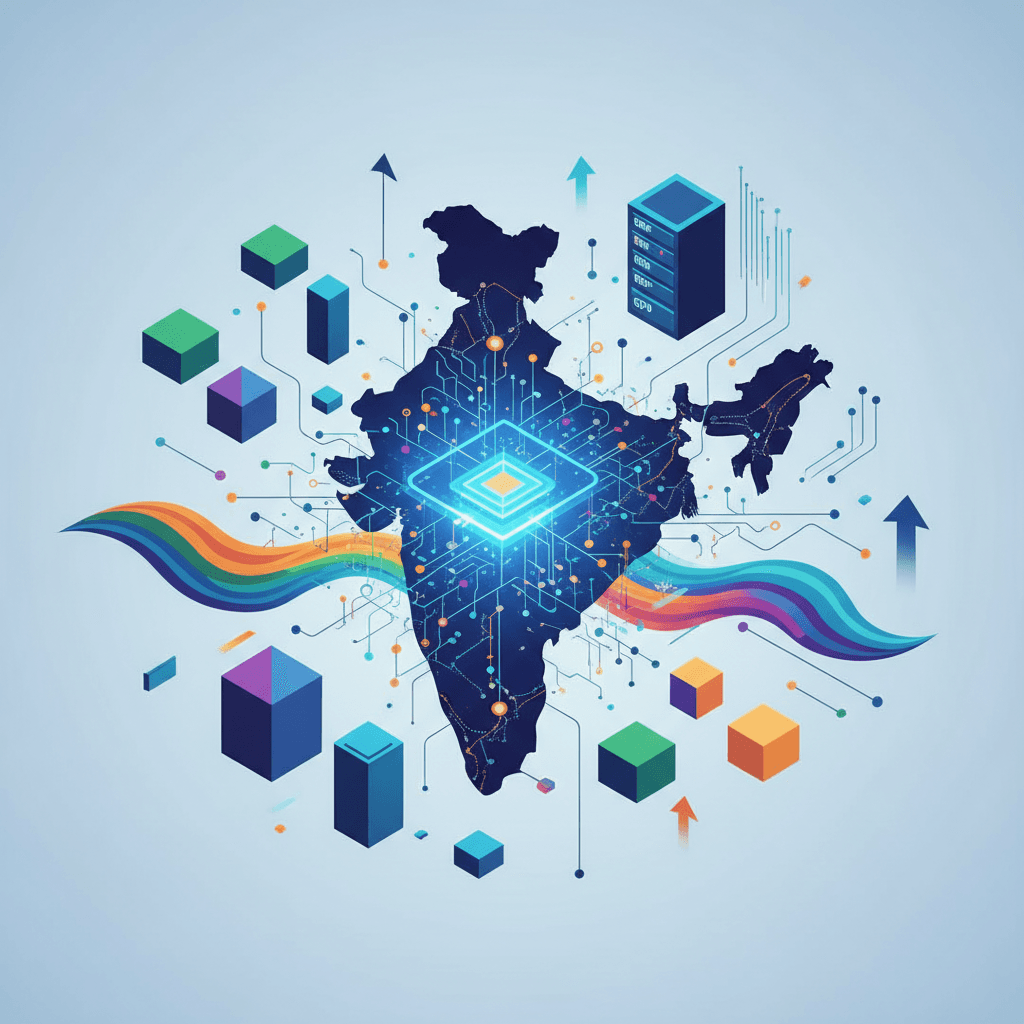India picks consortium to build indigenous AI models, powering global ambitions.
Academia, industry, and startups unite to forge India's sovereign AI future, building indigenous foundational models.
September 12, 2025

In a landmark move poised to accelerate India's ambitions of becoming a global artificial intelligence powerhouse, the government is set to announce the selection of a diverse consortium of academic-led initiatives, established technology firms, and agile startups for the second phase of its flagship IndiaAI Mission. Sources indicate that BharatGen, a multi-institutional initiative, along with prominent AI firm Fractal and IT services giant Tech Mahindra, will be among the key entities chosen to build the nation's indigenous foundational models. This strategic selection underscores a multi-pronged approach to achieving sovereign capabilities in AI, blending public research with private sector innovation to create a robust and self-reliant ecosystem. The cohort is also expected to include specialized firms such as Avataar.ai, Zenteiq Aitech Innovations, Genloop, Intellihealth, and Shodh AI, each bringing unique expertise to the national AI agenda.
The IndiaAI Mission, approved in early 2024 with a substantial outlay of ₹10,372 crore over five years, forms the bedrock of the country's strategy to harness the transformative potential of artificial intelligence.[1][2] The mission is built on seven key pillars, including establishing large-scale computing infrastructure, fostering innovation in indigenous AI development, creating comprehensive datasets, financing startups, and promoting future skills.[3][4] A central goal is the creation of a high-end AI computing ecosystem with over 10,000 Graphics Processing Units (GPUs), a critical resource for training the large-scale models that power modern AI.[5][1] By democratizing access to this crucial, and often prohibitively expensive, computing power, the government aims to level the playing field for Indian startups, researchers, and academic institutions, enabling them to compete with global technology giants.[6] This initiative is designed to catalyze innovation across the nation, ensuring that the benefits of AI are harnessed to solve India-specific challenges in critical sectors such as healthcare, agriculture, and governance.[5][6]
The selection of BharatGen, Fractal, and Tech Mahindra highlights the government's strategy of leveraging diverse strengths to build a comprehensive AI framework. BharatGen, spearheaded by IIT Bombay in collaboration with other premier academic institutions, is focused on creating foundational models as a public good, with a strong emphasis on India's vast linguistic diversity.[7][8] Its mission to develop models capable of understanding and generating content in over 22 Indian languages is crucial for digital inclusion and ensuring that AI technologies are accessible to all citizens.[9][8] In contrast, Fractal, an established leader in the AI and analytics space, represents a push towards specialized, high-value commercial applications. The company has already launched an open-source reasoning model and has proposed ambitious projects under the IndiaAI Mission to build India's first Large Reasoning Model (LRM) and a sophisticated multimodal model for medical applications.[10][11][12] Tech Mahindra’s "Project Indus" complements these efforts by focusing on the granular level of dialects, aiming to bridge the communication gap between urban and rural populations with an AI model trained on regional linguistic nuances.[13]
The inclusion of emerging startups further diversifies the mission's scope and injects specialized innovation into the ecosystem. Zenteiq Aitech Innovations, for instance, is focused on building a sovereign AI foundation for strategic sectors like defense and aerospace, addressing critical national security needs.[14] Avataar.ai brings expertise in agentic AI and immersive 3D experiences for enterprise applications, showcasing the commercial potential of advanced AI.[15][16] The selection of these varied entities signifies a deliberate effort to create a holistic AI landscape, one that supports public-good platforms, cutting-edge commercial research, and niche, domain-specific solutions. This public-private partnership model is designed to accelerate development, from fundamental research to real-world deployment, ensuring that India builds a well-rounded and resilient AI capability.[17]
This concerted push to develop indigenous foundational models carries profound implications for India's technological sovereignty and its position on the global stage. By training models on India-specific datasets, the mission aims to create AI systems that are culturally and contextually relevant, free from the biases that can be inherent in models trained predominantly on Western data.[18] This will be pivotal for developing effective AI applications in priority areas like healthcare, financial inclusion, and education.[19] The government's support, through subsidized compute access and direct funding, is a critical enabler, helping homegrown companies overcome the significant financial barriers associated with large-scale AI development.[20][18] This strategic investment is a clear signal that India is moving beyond being a consumer of foreign AI technology to becoming a creator and innovator in its own right, building an ecosystem that can not only serve its billion-plus population but also compete globally.[19]
In conclusion, the impending announcement of BharatGen, Fractal, Tech Mahindra, and a cohort of specialized startups as partners in the IndiaAI Mission marks a pivotal moment in the nation's technological journey. By strategically combining the strengths of academia, established industry leaders, and innovative startups, the government is laying a strong foundation for a self-reliant and inclusive AI ecosystem. This initiative is more than just a technological upgrade; it is a declaration of India's ambition to build its own AI future, tailored to its unique societal needs and developmental goals. The success of this collaborative effort will be crucial in determining India's trajectory as a leading force in the global artificial intelligence landscape for years to come.
Sources
[2]
[4]
[6]
[8]
[9]
[10]
[12]
[13]
[14]
[15]
[16]
[17]
[18]